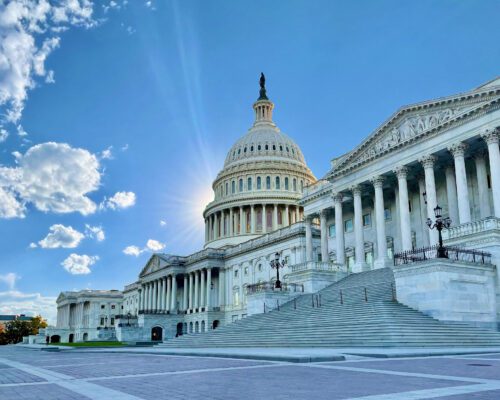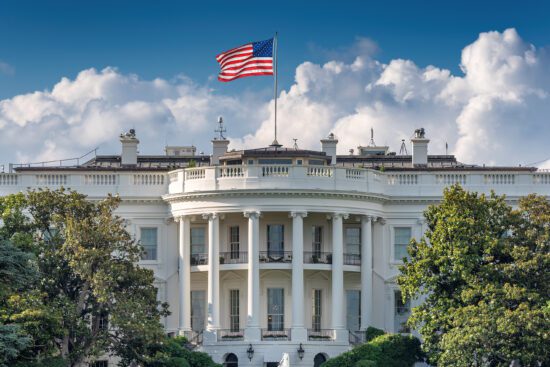What is the Ethics and Religious Liberty Commission’s Research Institute, and why is it needed? In the midst of a public square full of noise, the Research Institute is an important initiative that brings a distinctly Baptist voice of clarity, compassion, and conviction to the discussion surrounding theology, ethics, and public policy. Below, you’ll find answers to question you might have about this importanct aspect of the ERLC’s advocacy from and for our Southern Baptist churches.
What is the ERLC’s Research Institute?
The ERLC Research Institute acts as a gathering place for Southern Baptist academics, public intellectuals, and policy/legal experts who cast a distinctly Baptist vision of the common good and civic engagement. The Research Institute fellows work with the Research Team of the ERLC to cast this vision and advocate from their areas of expertise on issues of importance to Southern Baptists.
Why do we have a Research Institute?
Founded in September 1999, the Research Institute was formed for the purpose of advising and assisting the ERLC and the wider Southern Baptist Convention. As part of that mission, fellows were to help Southern Baptists “to apply biblical truth to moral, public policy, and religious liberty issues in order to bring modern culture and public policy into conformity with biblical truth” and “to develop a biblical worldview with which to evaluate and interact with the critical moral and religious liberty issues confronting [the] culture.”
Where has the Research Institute engaged in the work of the ERLC in past?
The Research Institute has looked different under each successive president of the ERLC.
- Under Richard Land, the Research Institute served as a a resource to pastors and ministry leaders through the regular production of The Facts, Culture Response Kits, Sermon and Bible Study Help Guides, and the monthly LifeLight. Each of these resources was sent to churches who requested them every month, with various members of the Research Institute and Research Team contributing. Topics covered in these early years included pornography, homosexuality, marriage, church-state relationships, gambling, and capital punishment.
The Research Institute also regularly released statements on policy concerns such as the 2004 “Statement on Human Stem Cell Research” and the 2006 “Statement on Human Species Altering Technologies.”
- Under Russell Moore’s tenure, the ERLC continued to produce statements. The Research Institute released statements which served to offer guiding principles for ministry leaders, policy experts, and legislators from a distinctly evangelical perspective.
Of particular note were the Nashville Statement (2017) and Artificial Intelligence: An Evangelical Statement of Principles (2019).
At the same time, the Research Institute increased its activity in large-scale projects and long-term research goals. Two significant research projects were: 1) the 2019 “Faith and Health Democracy” report, which explored evangelicals’ activity in the public square and the influence of religion on civil discourse; 2) additionally, growing out of the 2019 AI Statement, the Research Institute launched the Digital Public Square initiative to provide evangelicals with resources for engaging the new digital landscape.
Resources from this initiative include:
- a long-running podcast talking to experts on questions of faith, digital media, and technology;
- a popular-level book titled Following Jesus in a Digital Age;
- an academic volume titled The Digital Public Square with essays from Research Institute Fellows;
- a six-week Bible study with Lifeway Adults;
- and a booklet for teenagers titled A Student’s Guide to Social Media.
Who is a part of the Research Institute?
The Research Institute is made up of four senior fellows who specialize in the ERLC policy emphasis areas: life, religious liberty, marriage and family, and human dignity. The senior fellows serve as consultants, staff experts, and public commenters for the organization.
Additionally, the Research Institute includes over 30 fellows with their own diverse areas of research and expertise. Fellows hold terminal degrees (the highest level university degree that can be earned in a specific field) or have a publishing and professional record necessary to qualify them as experts in their field.
Fellows include:
- academics at Baptist seminaries and colleges,
- foreign policy experts with military and intelligence service experience,
- legal partners who specialize in religious liberty law,
- theologians,
- ethicists,
- and biblical counselors,
- as well as individuals working in public policy.
You can find the full list of fellows here.
Why should Southern Baptists care about the Research Institute?
While there is much that Southern Baptists can draw from other traditions in terms of engaging the public square, the Research Institute exists to offer what can only be best offered from Baptist voices.
Grounded in Scripture, interpreted by the Baptist Faith & Message (2000), and committed to the local church, the Research Institute is a resource that local churches can draw upon as they carry the hope of the gospel to their communities.










